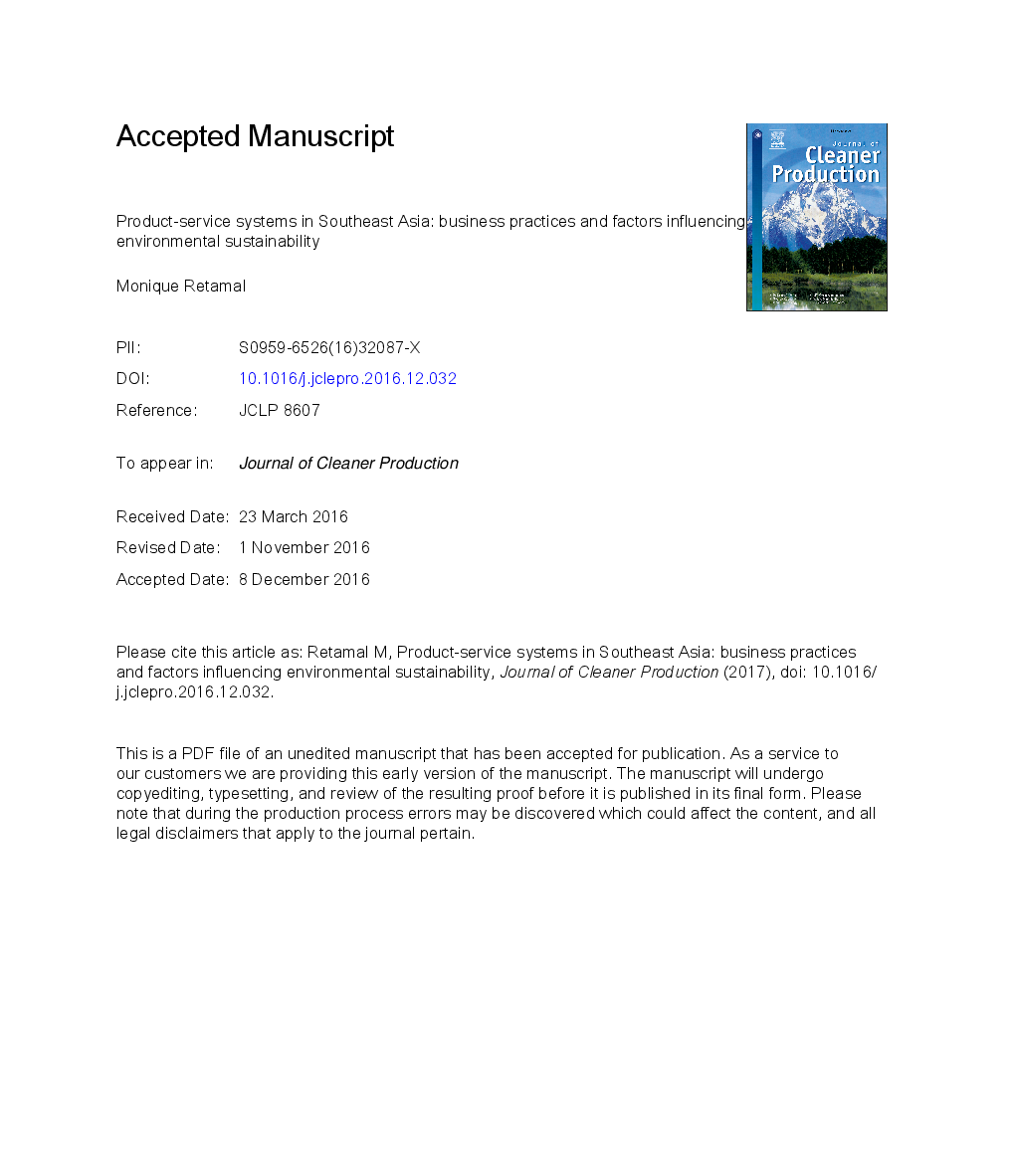ترجمه فارسی عنوان مقاله
سیستم خدمات محصول در آسیای جنوب شرقی: شیوه های تجاری و عوامل موثر بر پایداری محیطی
عنوان انگلیسی
Product-service systems in Southeast Asia: Business practices and factors influencing environmental sustainability
| کد مقاله | سال انتشار | تعداد صفحات مقاله انگلیسی |
|---|---|---|
| 141013 | 2017 | 27 صفحه PDF |
منبع

Publisher : Elsevier - Science Direct (الزویر - ساینس دایرکت)
Journal : Journal of Cleaner Production, Volume 143, 1 February 2017, Pages 894-903
ترجمه کلمات کلیدی
مصرف همگانی، مصرف مبتنی بر دسترسی، به اشتراک گذاری اقتصاد، توسعه پایدار، اقتصاد نوظهور، مصرف و تولید پایدار،
کلمات کلیدی انگلیسی
Collaborative consumption; Access-based consumption; Sharing economy; Sustainable development; Emerging economy; Sustainable consumption and production;

